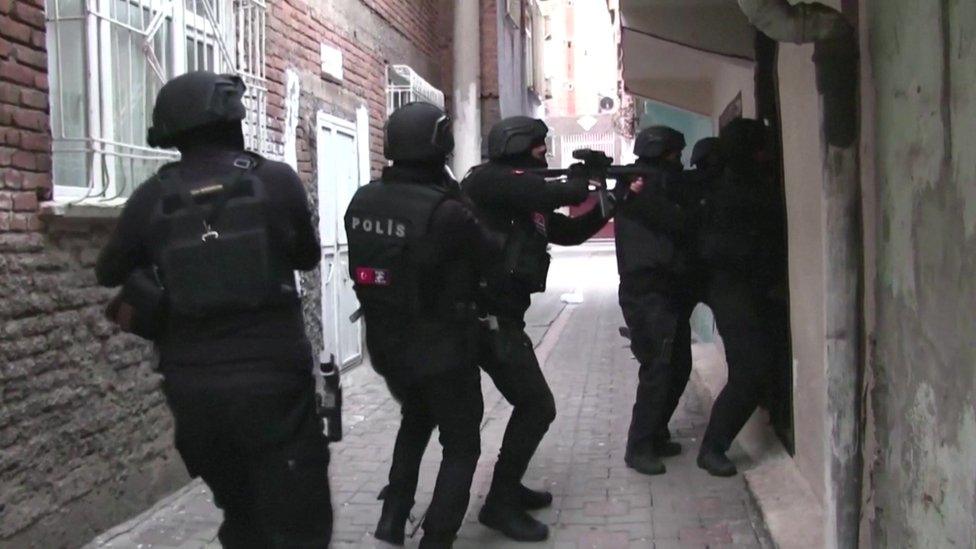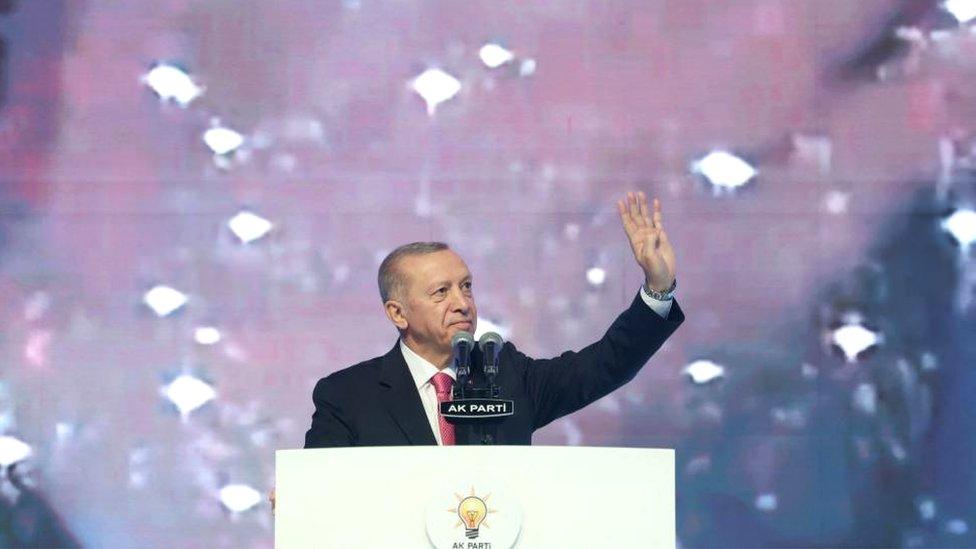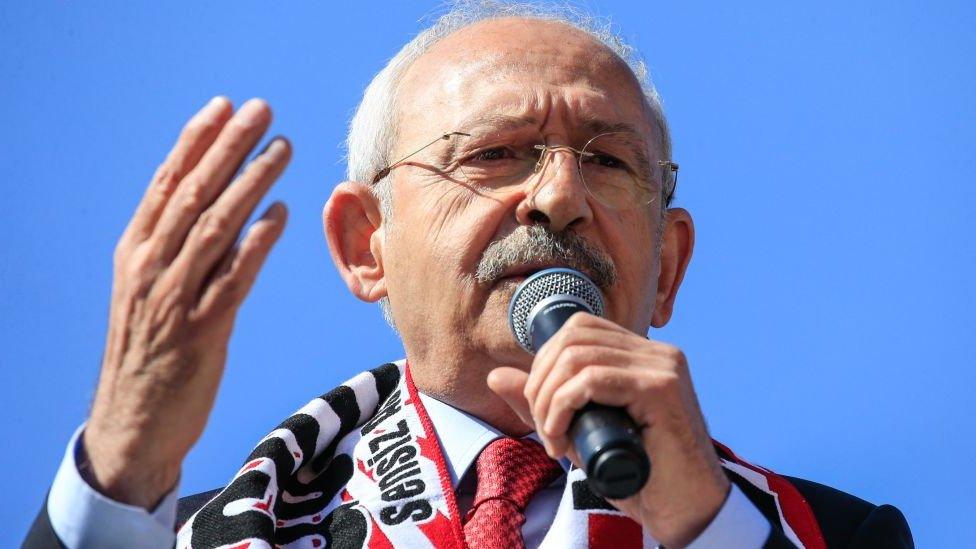Turkish mass arrests target Kurdish areas ahead of election
- Published

Police took part in raids in 21 provinces, including in the main Kurdish city of Diyarbakir
Turkish police have detained at least 126 people suspected of links to a banned Kurdish militant group, ahead of an election that could bring down President Recep Tayyip Erdogan.
Turkish reports said those held across 21 provinces were suspected of financing and helping to recruit for the outlawed PKK.
The suspects included lawyers, journalists and politicians.
The main pro-Kurdish party said the arrests were timed to affect the vote.
Nineteen days before Turks vote in presidential and parliamentary elections, the HDP said those detained included lawyers who could scrutinise election security, independent journalists, who could cover potential voter fraud, and party campaign managers.
Turkey's state news agency Anadolu said some of those held in Tuesday's raids were linked to 60 street protests as well as child abductions, and were led by public prosecutors in the predominantly Kurdish city of Diyarbakir.
The HDP denies links to the militant PKK, which is considered a terrorist organisation by Turkey, the United States and European Union. It is considered Turkey's second largest opposition party but has seen thousands of its members jailed, including former joint leader Selahattin Demirtas.
In 2019, dozens of elected HDP mayors were removed because of "terror charges", condemned by their party as a coup against voters.
In a bid to avoid a possible court ban on running for parliament on 14 May it has nominated its candidates under the banner of a new Green Left party.
The elections are being seen as Turkey's most significant for years, with six opposition parties uniting behind a single candidate in Kemal Kilicdaroglu. The HDP is not part of that so-called Table of Six but has backed his candidacy.
Mr Kilicdaroglu leads the Republican People's Party (CHP) and opinion polls give him a realistic chance of defeating Turkey's long-time leader Mr Erdogan, who has been in power for more than 20 years.
He has accused Mr Erdogan's ruling AK Party of stigmatising millions of Turkish Kurds as terrorists to consolidate nationalist votes.
President Erdogan has obtained sweeping powers in recent years, turning a largely ceremonial role into an elected post with the ability to appoint judges and declare a state of emergency, with the resulting power of ruling by decree.
His popularity has been dented by soaring inflation of over 50% and by his response to the double earthquake in February, which killed more than 50,000 people in 11 provinces and has left thousands homeless.
Earlier this month, Mr Erdogan accused the centre-left CHP of surrendering to the agenda of the pro-Kurdish party and the PKK "terror group".
The first round of the presidential election takes places on the same day as the parliamentary vote. If no presidential candidate wins more than 50% of the vote, a second round run-off follows two weeks later on 28 May.
- Published23 May 2023

- Published25 May 2023
